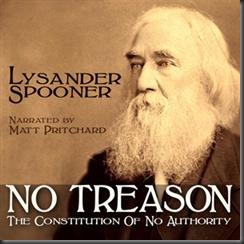Sound doctrine and proper theology are very important! Never forget I said that and I believe it deeply. Now, forget I said that because it’s not the point. Also note that I am proud of the folks at The Bad Roman and this isn’t aimed at anything I’ve seen or heard here.
My impetus for writing this came recently as I was running down the wall of a social media group of Christian Anarchists. I saw a bible verse that had to do with sin followed by a simple question, “Does anyone here NOT believe in original sin?” I’ve long given up my guilty pleasure of social media battling over proper orthodoxy. I thought I smelled what the post was about. I still engage sometimes, but from a different perspective that is also not so relevant to my topic. I engaged with this one and to my surprise it turned out okay. Because I’ve changed? Because it wasn’t Facebook or perhaps, I chanced upon someone who didn’t just want to pick a fight? Anyhow, that got me to thinking about part of my journey.
I’ve been into The Bible and theology since my late teens. I’m not formally trained and have no letters after my name, nor am I ordained. I’ve often referred to myself as a well-read hick. In my years in a truck, I’ve absorbed thousands of hours of theological material from every perspective I can get my hands on. I’ve had the privilege of rubbing shoulders with some very well-educated scholars and theologians over the years both online and a few in person. Good and Godly men and women. They have given me reason to believe my self-education has some quality to it. I have been told by a couple of lettered pastors, when discussing some topics, that they couldn’t help me much as it appeared I was way more familiar with the material than they were. Not to toot my own horn but just to say, I’m no dummy. I take my doctrinal and theological positions very seriously and they’ve been pretty consistent for over a decade now. One thing I’ve learned is I still have much left to learn, but most of the major issues are settled for me. But how has that changed my life? In two ways.
First was putting a big piece of practical theology in place. That deeper academic stuff is good to know and useful as well. Of course I think I’m right (don’t we all) and I think others should care (don’t we all). However, nothing is more important than keeping the main things in focus as the main things. I always knew that but something made it more personal for me. One of my cousins’ children died too young. I was flattered and terrified when she asked me to give the eulogy at his funeral. I couldn’t refuse and took the responsibility very serious. Eulogies in my family are often part sermon. I knew that often the living want to know that their loved one was ‘saved’. The circumstances of his death and life may have led some to wonder and I’d didn’t want to compromise on what I believe to make people feel good. Thankfully she answered a couple of questions that put my mind at ease fairly quickly and simply. I did some study that yielded the result I’m sure they wanted and taught me something along the way that gave me the sermon portion.
What I found was the simple truth of Acts 16:22-34, Paul and Silas and the Roman Jailer, “Believe in the Lord Jesus and you will be saved…”. Not all by itself or just that verse or out of it’s textual context, but with historical context and other things I’ve always know through the years. Those few days of preparation, prayer and inspiration gave me a different outlook on who was in, who was out and how I should think of and act toward my brothers and sisters in Christ. Not that I didn’t know the passage before. Not that there isn’t so much more packed inside that word ‘believe’ that is important. But, if you put that together with, ‘the faith of a child’ knowing what a child can and can’t fully grasp then you have a solid basis for grace toward the rest of God’s family. How is that the first change? Because I know, with all the other nitty gritty nitpicky positions I understand and have firm positions on, that this simple truth is well founded and biblically sound. I don’t need to know more than that from someone to know where we stand as family. One can hold very complicated and sophisticated truths that are good and helpful in life, but I just can’t divide humanity any further than that. If you say you believe that, I take you at your word. You are my brother/sister even if you don’t consider me so. Even if you hold some very weird or even what I consider to be heretical positions. We can be in error, even heretical error, myself included, but if we believe, we are in the same family and we should remember that. We may see the absolute contradiction between that basic belief and other biblical positions others may present. That’s an error of knowledge or understanding, it’s not a sin that separates us from God who knows our hearts. Don’t get me wrong, he also knows our minds and if we could/should know better and we should try to reconcile all things, and we will give account for that, but that isn’t the main thing.
The second thing that changed for me was how I interacted with people who are just needing help. A couple of years ago I met a fella at work. I avoided him a bit at first because he seemed odd and I’m a bit of an introvert. I’m a local fuel hauling trucker by trade so having to talk to my fellow employees if I don’t want to isn’t usually a problem…. Usually. But he was new to that niche of trucking and I’m always willing to help anyone do the job right so when he got my phone number and called, I answered.
I quickly found out my instinct was correct. He was certainly odd but our relationship had begun and I try not to be mean to folks and he clearly needed help with more than the job. We’ll call him Jim. Jim is quite gregarious, and we got to know each other casually until he suspected that I was a believer. I affirmed and he warmed up and opened up to me more, for better or worse. Over time he began to tell me more of his story and about his issues. Long story short, Jim is a basket case. He knows it and wouldn’t be offended by me saying so as long as I didn’t identify him. Jim has pretty severe anxiety issues stemming from OCD and moderate bipolar issues. Other ‘diagnoses’ are possible but I’m not sure if his professionals (as I began to call them) gave them to him or he determined them all by himself. The listed ones matched well with my experience of him and the meds he told me they prescribed for him for those conditions. Yes, I checked because some of his stories are pretty wild. His issues may stem from oxygen deprivation at birth doing some brain damage as well, however I find he is pretty smart though he doesn’t apply his intellect very rationally, probably do to the mental and emotional problems. I heard his adopted dad in the background on a phone call once and determined that, yes, his childhood was probably as bad as he had said. I don’t like judging strangers much but the man I heard in the background and what he said sounded like a pretty horrible human being to me. Jim doesn’t handle money well and is a gambling addict on top of all that so he was back living with his parents at 37 years old. He really knows the math and strategy of poker very well and could probably be quite successful at it if his mind was in order, but it’s not. That’s the very short version of Jim’s life and issues.
Now, here is what gets him way off track, off his meds and once, ‘checked in’ for a few days out of all touch with reality and on the verge of breaking down completely. He knows his bible fairly well, listens to various preacher’s recorded sermons and shares the gospel often with strangers. Of course, he gets various views about scripture and challenged by some that he is evangelizing. He takes these things to heart, internalizes them then begins questioning his own salvation. His faith is very sincere and deeply held and he is easily terrified that he might be missing the mark. Did I ‘do’ it right? Did I say the right words? Can I, did I, loose my salvation? These are questions he would agonize over to the point of sickness. Anyone could hear it in his voice. Physical sickness, fear and anxiety. I already held my above point of view of the main thing in salvation and would walk him through all the facts and do my best to get him squared away so perhaps he could sleep that night. These conversations would last for hours almost every day. Some days better than others. Sometimes I’d just keep him in a good place for the day with conversations about other things and some days I would be walking him back through the minefield of his own compulsions that were messing with him. It was mostly the same things over and over again. He seemed to forget today what we had worked out just yesterday or even a few hours before.
I decided what might help him better was if I could drill something simple into his head that he could recall, ask himself about and always come to the same conclusion. This is where Acts 16 comes partly into play. Previously I had used different explanations for whatever detail was bothering him that day and worked out the particular thing that had stuck in his head. We went through the range of theological positions on salvation (soteriology) but as I said, he’s pretty smart actually and could often challenge me with why this or that explanation might not apply to him and he could be doomed after all. We both agreed that salvation was about what you believe and who you trust so I could deal with many of the standard things. But he would dig into the particulars of what one had to believe and ‘how much’ they had to believe it as well as if and how it should be expressed to God. I went down that rabbit hole with him to show him the absurdity of where he was going each time. For instance, he would constantly want to pray a sinners prayer expressing what he believed to God to ‘make sure God knew’ he believed the right things, repented properly and didn’t have ‘bad thoughts’ intrude while doing it. Dozens of times in a row he would do this thinking he left something out or had a ‘bad thought’ pop in his head in the middle of it that made it all void. I pushed him and would say, wait you didn’t tell God that time that you believed Jesus was born of a virgin, oh and you missed telling him that you believe he turned water into wine and walked on water. I know things like that would torture him but he got the point eventually that his salvation wasn’t based in those details of the faith. I sometimes wouldn’t even need to challenge him. He would pray his prayer on the phone with me, say ‘amen’, pause then ask me, ‘did I say this thing or that thing? You think I should pray again?’ He began to realize that it would be impossible to remember and confess all the truths he believed. I tried to make it simpler for him to have assurance by giving him simple things to remember. I finally struck on the question!
“Jim, do you believe Jesus did everything necessary for you to have eternal life?” I spent several phone calls pouring theology into that question so he would understand. That it was Jesus that did it and He did it for him. That it was everything necessary. That we don’t need to list every detail of all those necessary things every time we think of that question. They’re in ‘The Book’. You’ve read them all and believed them when you read and understood them. We had discussed most all of them. And finally, that believing that means you have eternal life. I even specifically chose ‘eternal life’ rather than saved because of the many uses of ‘saved’ in scripture and in our conversations that could confuse him. That did the trick most of the time there on out. He would head off on some tangent of doubt and I’d stop him and make him say it by simply asking, “Jim what’s the question and what’s your answer?”
It would frustrate him because he learned over time that these obsessions could keep his anxious mind occupied but eventually he would stop, calm down and answer me, “Dang it! You always ask me that. Yes, I believe Jesus did everything necessary for me to have eternal life.” I made him memorize exactly those words and made him say it again if he left something out or started adding stuff to it. I felt it needed to be that consistent because if we left part of it out or improvised more stuff in, that would be the part he would fixate on to produce FUD, fear uncertainty and doubt. Sometimes we’d have to break down parts of the theology that went into that statement again. Sometimes I would stop him from digging deeper and ask what more he needed to know than that. Eventually over months of drilling that into his head and making him recall it explicitly and exactly and apply the conclusion to himself it began to have an effect. One day he called me and said, “Curtis! It’s awesome brother! Last night I started having doubts and obsessing and it just popped into my head, I believe Jesus did everything necessary for me to have eternal life! I am saved! I really am!” He was able to get his mind under control, calm down and sleep. I admit, he was wearing me out after about a year of this, every day, several hours a day. (I did finally make him give me weekends off.) That little victory made those hundreds of hours worth it. He still has setbacks, but that simple truth makes a world of difference in his life as a trustworthy anchor.
Conclusion, theology and sound doctrine are important. They helped him get there. But once there, placing that well concluded marker in his mind made life and faith easier for him. We disagreed about other points of doctrine and he made me work, win or loose the point in his mind, but we could agree that this statement was biblically sound and he could stand on it as solid rock.
Broader conclusion, we’re brothers and sisters engaged in a struggle for the church universal to come out from the state. Discussions about doctrine are good. The basic lable though is only twofold, Christian Anarchist. Not Catholic Christian Anarchist, Baptist Christian Anarchist, Calvinist or Arminian Anarchist, Anabaptist, Orthodox etc… Anarchist. Just Christian Anarchist. I believe that all stripes of Believers have a solid basis within the orthodoxy of their denomination or sect to oppose entanglement of believers in the state. Therefore, this should truly be an ecumenical effort and we should avoid criticism and dividing humanity within this goal beyond, do you believe (Acts 16) and is statism of any stripe a proper thing for believers to be involved in. As an Anarchist, I wanna change the world. As a Christian Anarchist, I wanna change The Church (universal). I think we could all agree that changing The Church in that way would surely change the world. Let’s start there and burn the heretics later, if you still want to after working together in love to make The Church more like Christ in a way we all agree on.
Your brother together in Christ,
Curtis
Oh… the title. My brain often works in pop culture.
There’s a million ways to laugh. Every ones a path….
Do you really think I care, what you eat or what you wear?
Won’t you join together with the band?
Pete Townshend, The Who, ‘Join Together’


